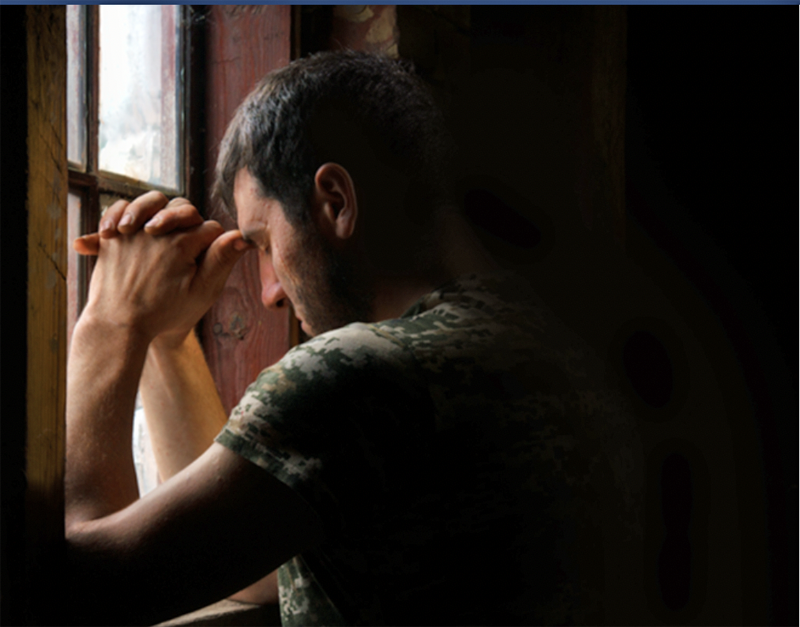ALBUQUERQUE, NEW MEXICO (ANS )–One-third of the world population is presently on lockdown; they are restricted by their own governments and kept (by force if necessary) from gathering together in groups. Though infection rates from the coronavirus seem to vary from region to region, one thing is common to all—everyone is suffering in one way or another. But did you know that suffering can be a good thing in the hands of a good God?
)–One-third of the world population is presently on lockdown; they are restricted by their own governments and kept (by force if necessary) from gathering together in groups. Though infection rates from the coronavirus seem to vary from region to region, one thing is common to all—everyone is suffering in one way or another. But did you know that suffering can be a good thing in the hands of a good God?
Using 1 Peter 1:6-7 as my text, here’s five points to ponder.
 Why Should I Suffer?
Why Should I Suffer?
A month ago, we hadn’t heard of social distancing. Now we back up anytime someone comes near us. And the word quarantine wasn’t as familiar, usually relegated to infection rates of some far-off place. Besides the health problems associated with coronavirus, there’s the mental stress: anxiety, fear, tension, and panic.
One medical journal stated this: “The psychological impact [of quarantine] can be great, resulting in a range of mental health issues from anxiety and anger to sleep disturbances, depression and post-traumatic stress disorder.”[1]
The World Health Organization—just this week— released guidance to protect mental health during this crisis.[2]
Though the circumstances facing early Christians were different (persecution because of their faith versus disruption of everyday life due to a virus), there are principles we can apply from the letters written during times of crisis.
First Peter is such a letter, written to Christians throughout the Roman Empire, all of whom were suffering. Peter refers to suffering fifteen times in the letter, using eight different Greek words to do so.
Most of you reading this won’t get the coronavirus, but you may lose your job or lose money; we’ll all suffer because of this virus. As the Harvard Business Review wrote, “Some fear a global recession in the global economy is a foregone conclusion.”[3]
Peter wrote of being “grieved by various trials” (1 Peter 1:6). The word he used for trials means “hardship,” “troubles,” and “pressures of life.” Many of us are experiencing trials.
But notice what Peter says about such trials: “In this you greatly rejoice” (v. 6). What is he referring to?
Don’t we rejoice when the trial is over, if we have avoided suffering? And if we do suffer, aren’t we more likely to ask, “Why?”
Most think joy means the absence of trials, but not Peter. Let’s look at why he was able to rejoice in hardship.
Trials Are Multiple
Peter uses the word “various” to describe the many trials Christians were facing. The Greek word translated various can mean “many colored.”
The various trials we face come in different shades and hues, much like a color chart; we’re blue one day, gray the next. Some trials are big, some are small; some are short, and others, prolonged.
Pain has many faces in Scripture:
- Physical trials: Health problems are the most common. Think of Job and Paul.
- Emotional trials: David’s psalms are filled with emotional stress. Elijah experienced stress and depression. The truth is, Christians are not immune to depression or exhaustion. The CDC reports that “9 percent of adults have feelings of hopelessness, despondency, and/or guilt that generate a diagnosis of depression. At any given time, 3 percent have…a long-lasting and severe form of depression.”[4]
- Spiritual trials: This is where we agonize over sin, guilt, doubt, or unfilled spiritual expectations.
 Trials Are Painful
Trials Are Painful
The reality of all the trials described above is that they are painful. Peter uses the word “grieved,” which means “distressed,” or “made heavy.” It’s the same word that describes Jesus’ feelings in Gethsemane.
Here’s what you need to know: Pain is normal and healthy; it’s a valid response to hardship. After all, Jesus had pain, Paul had pain, as did Job and Jeremiah. Try and find someone in the Bible who did not deal with some kind of pain.
To deny your pain makes the trial worse.
Trials Are Needful
So, is Peter saying that we need trials? Yes. “If need be, you have been grieved…”
That tells us that there are special times when God knows we need trials because He is going to use them for something.
Put another way, Peter is saying that we suffer according to God’s will; He has a purpose for them (see 1 Peter 3:17 and 4:19). When we suffer, there is a need that is being met.
Why do we need trials?
One, they measure us: Trials are tests that reveal the level of our faith (see v. 7), much like a jeweler can tell if gold is pure or fake—heat it up with pure gold. A faith that can’t be tested is a faith that can’t be trusted. Trials become a measure of your spiritual maturity.
Two, they correct us (see Psalm 119:6). It’s as C.S. Lewis said, “Pain plants flag of truth in the fortress of a rebel soul.”
Three, they strengthen us (see James 1:2).
Four, they equip us. You’re never equipped to comfort a sufferer ‘til you become one (see 2 Corinthians 1). It’s as A.B Simpson states, “You’ll have no test of faith that will not fit you to be a blessing…I never had a trial but when I got out of deep river I found some poor pilgrim on bank that I’s able help by that very experience.”
 Trials Are Remedial
Trials Are Remedial
Notice Peter uses metal imagery (gold). Goldsmithing allowed heat to smelt in the furnace to get out impurities; it refines. It’s just like Job states, “He knows way I take; when He has tested me, I’ll come forth as gold.”
Here’s the truth: God isn’t out to burn you, but to bless you; a blessing in the disguise of a burden.
It’s as Warren Weirsbe states, “When God permits His children to go through the furnace, He keeps His eye on clock and His hand on the thermostat.”
In ancient times, the goldsmith had a method to measure purity of gold. He looked into the ladle at a pool of melted gold. The purer and shinier it was, then it was ready. If it was pure enough, he could see his reflection.
Here’s my point: through trials, God wants to look at you and see image of Jesus reflected back (see Romans 8:9). For every shade of trial you go through God has a color match in His palate of grace. Do trials weaken and wilt you? Do they stiffen your spirit and harden heart? Or when things get hot do you release fragrance and add flavor?
I hope it’s the later.
So, stop telling God how big your storm is and start telling the storm how big your God is.
Connect Up, In, and Out
To help internalize some of the thoughts shared in this article, use this section to connect up to God, connect in to other believers, and connect out to those in need.
Connect Up: As Pastor Skip pointed out, the Bible is full of His people going through trials. Even Jesus went through suffering and pain. But what was the outcome? From Jesus’ death and resurrection came a new destiny, renewal and restoration. How has trials in your life been used to refine you? What are some the eternal truths you’ve learned through tribulation?
Connect In: As Pastor Skip pointed out in an early teaching on the coronavirus (“The Quarantined Life”), “The coronavirus isn’t so much about Revelation 13 (the end of days) as it is Leviticus 13 (healthy community practice). Therefore, let’s act according to 1 Corinthians 13 (love) until Romans 13 runs its course (government protection).” Using this statement, discuss the differences between a “Leviticus 13” crises and the “Revelation 13” tribulation. Look up the chapters to discuss. What is one of the main factors between them? Hint: according to premillennial eschatology, the church is in one, and not the other. And since we are in a Leviticus 13 type predicament, what it the role of the church and government (see Romans 13)?
Connect Out: Using Pastor Skip’s outline (trials are multiple, painful, needful, and remedial), how would you discuss with a non-believer the role trials and tribulation plays in the life of a believer? Also, how would you answer his or her question as to why God allows evil, pain, and suffer. For the later question, look up Norman Geisler’s thought here: http://normangeisler.com/category/problem-of-evil/.
[1] Karen Gilchrist, “Psychology Experts Share Their Tips for Safeguarding Your Mental Health During Quarantine,” CNBC, March 20, 2020, https://www.cnbc.com/2020/03/20/coronavirus-tips-for-protecting-your-mental-health-during-quarantine.html. The article cited a study: Samantha Brooks, et al., “The Psychological Impact of Quarantine and How to Reduce It: Rapid Review of the Evidence,” The Lancet, March 14, 2020, https://www.thelancet.com/journals/lancet/article/PIIS0140-6736(20)30460-8/fulltext.
[2] WHO Contributors, “Mental Health Considerations During COVID-19 Outbreak,” World Health Organization, March 6, 2020, https://www.who.int/docs/default-source/coronaviruse/mental-health-considerations.pdf?sfvrsn=6d3578af_2.
[3] Philipp Carlsson-Szlezak, Martin Reeves, and Paul Swartz, “What Coronavirus Could Mean for the Global Economy,” Harvard Business Review, March 3, 2020, https://hbr.org/2020/03/what-coronavirus-could-mean-for-the-global-economy.
[4] Chris Iliades, “Stats and Facts about Depression in America,” Everyday Health, January 23, 2013, https://www.everydayhealth.com/hs/major-depression/depression-statistics/.






